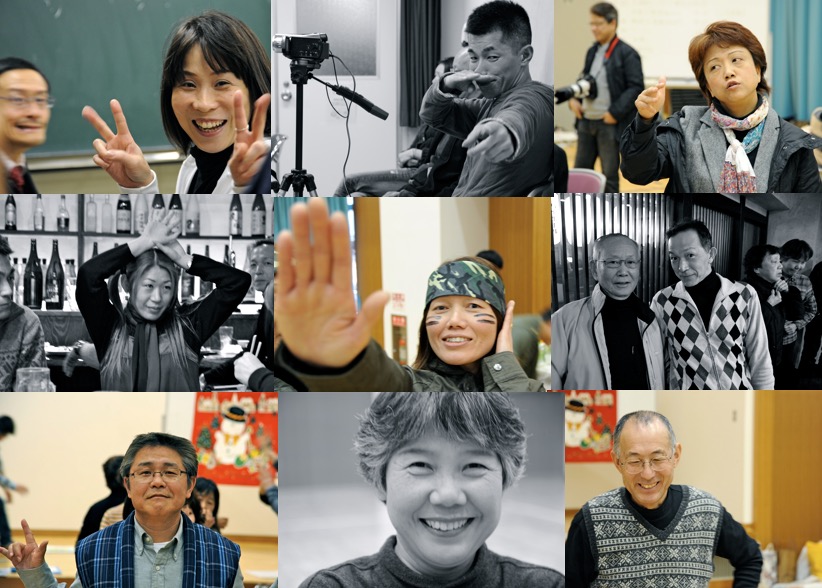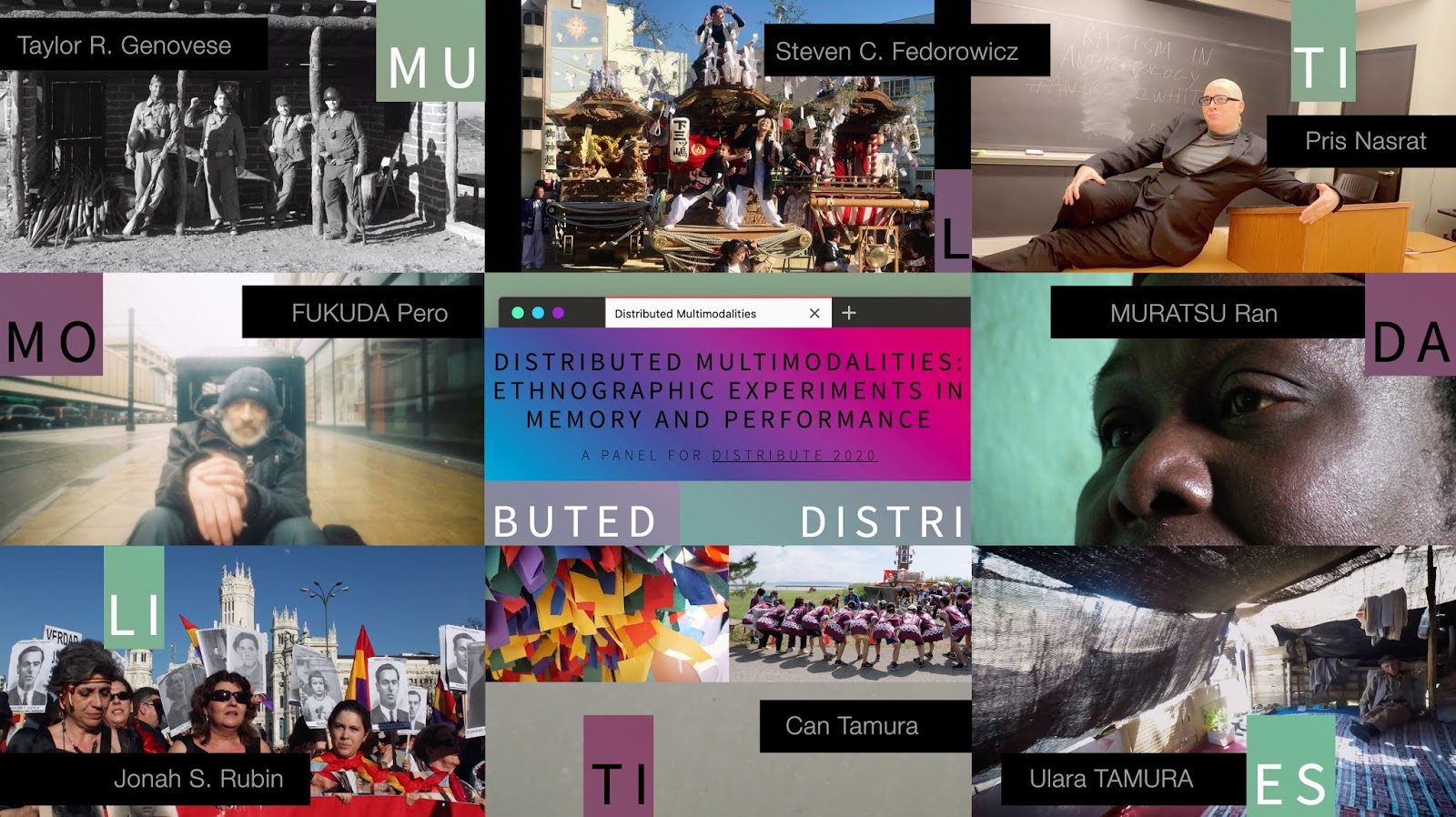From today's Japan Today:
While many film directors around the world have worked until their senior years, not many have managed to maintain the will and physical strength to continue their careers until they are 98 years old as Kaneto Shindo has.
His strong opposition to wars and nuclear weapons is what is driving the award-winning director and scriptwriter to keep shooting films despite now being wheelchair-bound.
Nearly 60 years after making the 1952 film ‘‘Genbaku no Ko’’ (Children of the Atomic Bomb) on the A-bombing of Hiroshima, which was the first independent piece produced by his own film production company, the Hiroshima native is now making a film about World War II and the lead-up to the bombing in what he calls his ‘‘last piece of work.’‘
‘‘I am a filmmaker, and a filmmaker must continue to make films on the atomic bombings, forever,’’ said Shindo in a recent interview in Tokyo, after finishing shooting ‘‘Ichimai no Hagaki’’ (A Postcard), his 49th film, scheduled to be released later this year.
Shindo said he had both seen the beauty of the city and its devastation by the atomic bombing on Aug 6. 1945, and was driven by the strong urge to depict the incident when he made his first A-bomb film.
‘‘The beautiful city I knew in childhood was turned into rubble just by a single bomb…It killed tens of thousands of people instantly, unlike other bombs that can only kill a maximum of a hundred at a time,’’ Shindo said. ‘‘That is a crime against humanity.’‘
His crew started filming in the city seven years after the bombing, when it was still mostly in ruins, despite having a budget of just three million yen at a time when film-making usually cost tens of millions of yen.
The black-and-white film shows a young woman visiting children she had taught as a kindergarten teacher after the blast while depicting the suffering caused by the bombing through the daily lives and conversations of the characters.
One of the scenes depicting the moment of the blast shows a clock ticking as a mother breast-feeds her baby, children playing, sunflowers standing high against the sky and people doing their morning chores, and then a flash of white light when the atomic bomb was dropped by the United States.
Shindo himself did not experience the Hiroshima bombing as he had been drafted at the time, but repeatedly revised his self-written script through daily meetings with atomic bomb victims, making sure he did not exaggerate the facts about the bombing and the damage it left.
As a result, the piece came to hold a power and sincerity that has led some atomic bomb survivors to call it the only atomic bomb film they can relate to.
Shindo’s sincere attitude towards the issue and deep sympathy captured the hearts of many of the survivors and inspired them—even those with severe burns to their face and body—to volunteer to appear in the film.
Through the repeated exchanges with them, Shindo said he came to think that although they are called ‘‘survivors,’’ their lives were actually ruined to a point that it is equivalent to being killed, a sense that reinforced his opposition to nuclear weapons.
Although he has a varied output of movies and scripts, producing pieces on a range of social issues as well as work in the comedy and documentary genres, his films on war and nuclear weapons are, by far, the centerpiece of a career decorated with a number of international awards, with ‘‘Genbaku no Ko’’ the first to be recognized.
Those films reflect Shindo’s core belief that the life of ordinary people should be cherished and that such destructive forces as war that deprive people of their ordinary lives should be strongly protested against.
‘‘I am looking at the war from the eyes of average people,’’ Shindo said, adding his first Hiroshima film, as well as the latest one, takes such a standpoint.
The latest film ‘‘Ichimai no Hagaki’’ deals with a postcard a soldier headed to the warfront receives from his wife in which she writes, ‘‘There is a festival today but without you, there is no attraction.’’ The film is based on Shindo’s experience of becoming one of only six people to survive in the 100-man unit he belonged to during World War II.
One of his comrades in the unit died after receiving such a postcard, which Shindo believes was telling the man that he was ‘‘the most precious thing’’ in the world to his wife.
‘‘It is war that rips away the most precious thing from people’’ and eventually takes away everything, Shindo said. ‘‘The death of a soldier would destroy his family in the end. And that’s the very reason I am against the war.’‘
Although he says ‘‘Ichimai no Hagaki’’ may be his last film, he still indicated a desire to further explore the topic, and noted that he might have done ‘‘Genbaku no Ko’’ differently if he had had the scientific understanding of the effects of the A-bombs now available.
‘‘I still want to make a film about it,’’ he said.
His stance and enthusiasm for the film-making on the topic has never changed over the years.
‘‘My wish would be to die after crying out one last time ‘no more wars,’‘’ he said.
Read the story and reader comments:
http://www.japantoday.com/category/entertainment-arts/view/98-year-old-director-confronts-a-bomb-war-through-films
Subscribe to:
Post Comments (Atom)






















No comments:
Post a Comment